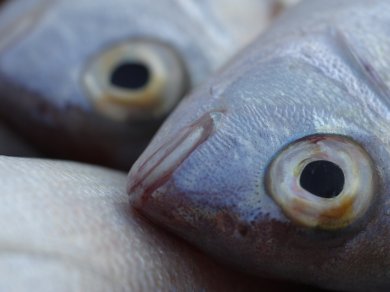Ciguatera is one of the most common form of food poisoning. It is caused by fish flesh contaminated with ciguatoxins, toxins produced by microorganisms called dinoflagellates. In addition to producing gastrointestinal symptoms, ciguatoxins provoke a long lasting cold allodynia, the perception of mild cold as burning pain.
Irina Vetter, University of Queensland, Australia, and colleagues discovered that ciguatoxins elicit this phenomenon by targeting transient receptor potential cation channels A1 (TRPA1). These are neuronal calcium channels mediating a feeling of burning pain when activated by extreme cooling conditions. The researchers demonstrated that ciguatoxins induce, in sensory neurons, an influx of sodium which is able to activate TRPA1 even at mild cold, thus causing cold allodynia.
Thus, TRPA1’s pharmacological inhibition might be important to alleviate the neurological symptoms of ciguatera poisoning.
- Ciguatoxins activate specific cold pain pathways to elicit burning pain from cooling,
I. Vetter, F. Touska, A. Hess, R. Hinsbey, S. Sattler, A. Lampert, M. Sergejeva, A. Sharov, L. S. Collins, M. Eberhardt, M. Engel, P. J. Cabot, J. N. Wood, V. Vlachová, P. W. Reeh, R. J. Lewis, K. Zimmermann,
EMBO J. 2012, 31 (19), 3795–808.
DOI: 10.1038/emboj.2012.20



